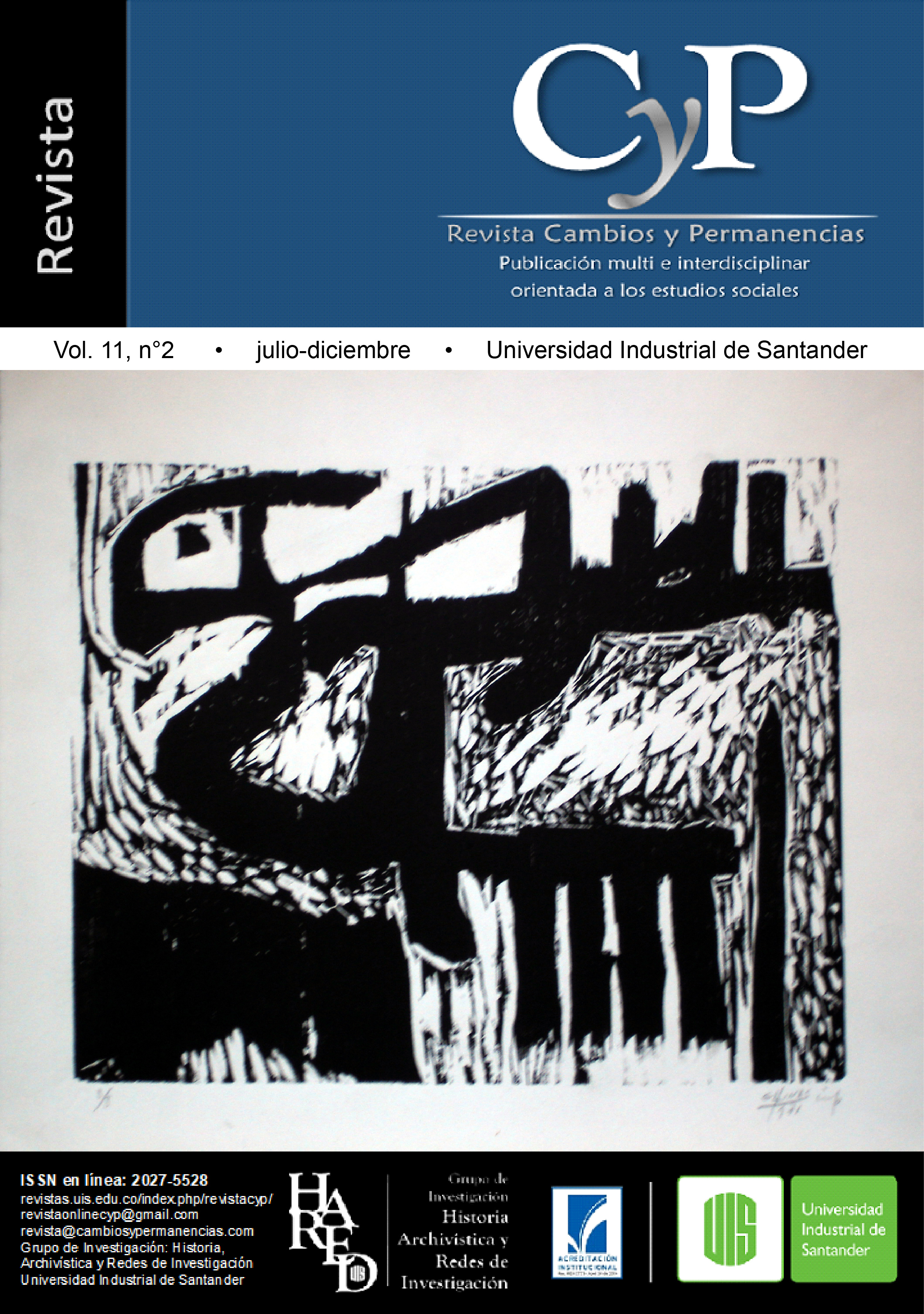Emotional pedagogical synchrony and reading difficulties in the first grades of schooling
Published 2020-12-15
Keywords
- Mediation,
- learning difficulty,
- reading instruction,
- intervention,
- student evaluation
How to Cite
Abstract
This article explains the emergence of the Emotional Pedagogical Synchrony construct within the framework of an explanatory qualitative research with an experiential introspective approach, which relied on action research and grounded theory for its theoretical and methodological design. This comprehensive emerging concept arises when applying 3 surveys to teachers and analyzing the characteristics of the mediation strategies they use during teaching, learning and reading assessment, as well as the attention to the reading difficulties that students present in the first school grades in a Colombian public educational institution. It is based on Vygotsky (1981), Goleman (2018), De Gregori (2003), Maturana (2001), Brofenbrenner (1979). In the emotional support strategies, the guided pedagogical mediation and the triadic interaction, it reveals success factors for the pedagogical intervention that provides adequate and timely attention to the reading deficiencies of novice readers during the first school grades. These theoretical findings have a high degree of significance in guiding teachers and educational institutions for the design of adequate pedagogical interventions that seek to reduce the educational gap and other factors of school failure that could be related to students' reading deficiencies.
Downloads
References
Bronfenbrenner, U. (1979). The ecology of human development. Experiments by Nature and Design. EE.UU.: Harvard University Press.
Contreras, A. (2004). Mediación de procesos cognitivos y aprendizaje de la lectura. San Cristobal, Venezuela: Litoformas.
De Gregori, W. (2003). Construcción familiar-escolar-étnica de los tres cerebros. Bogotá, Colombia: Kimpress.
Glaser, B., y Strauss, A. (1967). The discovery of grounded theory. Chicago, EE.UU.: Aldine Publishing Company.
Kemmis, S., y McTaggart, R. (1988). Cómo planificar la investigación-acción. Madrid, España: Laertes.
Maturana, H. (2001). Emociones y lenguaje en educación y política. [Documento Web]. Recuperado de https://es.slideshare.net/vivianamdg/humberto-maturana-emociones-y-lenguaje-en-educacion-y-politica-11708822
Maturana, H., y Nisis, S. (2002). Formación humana y capacitación. Santiago, Chile: Dolmen.
Mora, J. (2015). Evaluación de la eficacia de un programa de implicación familiar para mejorar la lectura en estudiantes de 6 y 7 años (Tesis doctoral). Universidad Nacional de Educación a Distancia- UNED, España. Recuperado de http://e-spacio.uned.es/fez/eserv/tesisuned:Educacion-Jmora/MORA_FIGUEROA_MONFORT_Juan_Tesis.pdf
Niño, C. et al. (2012). Implementación pedagógica para mejorar procesos mentales y educativos en secundaria. [Documento Web]. Recuperado de https://issuu.com/claupatty27/docs/articulo-informe_de__investigacion
Padrón, J. (2000). La Estructura de los Procesos de Investigación. Revista de Educación y Ciencias humanas, IX(17). Recuperado de https://www.researchgate.net/publication/277249442_LA_ESTRUCTURA_DE_LOS_PROCESOS_DE_INVESTIGACION
Panadero, E., y Alonso-Tapia, J. (2014). How do students self-regulate? Review of Zimmerman’s cyclical model of self-regulated learning. Annals of Psychology, 30(2), 450-462. doi: 10.6018/analesps.30.2.167221
Parra F., y Keila, N. (2014). El docente y el uso de la mediación en los procesos de enseñanza y aprendizaje. Revista de Investigación, 38(83), 155-180.
Rodríguez, N. (2016). Neuroeducación para padres. Barcelona, España: Ediciones B.S.A.
Strauss, A., y Corbin, J. (2002). Bases de la investigación cualitativa. Técnicas y procedimientos para desarrollar la teoría fundamentada. Medellín, Colombia: Universidad de Antioquía. Recuperado de https://diversidadlocal.files.wordpress.com/2012/09/bases-investigacion-cualitativa.pdf
Touriñan, J. (2014). Dónde está la educación: actividad común interna y elementos estructurales de la intervención. España: Netbiblo.
Vygotsky, L. (1981). Pensamiento y Lenguaje. Buenos Aires, Argentina: La Pléyade.

